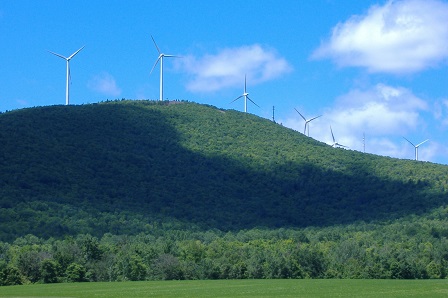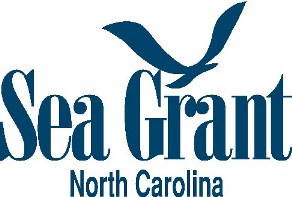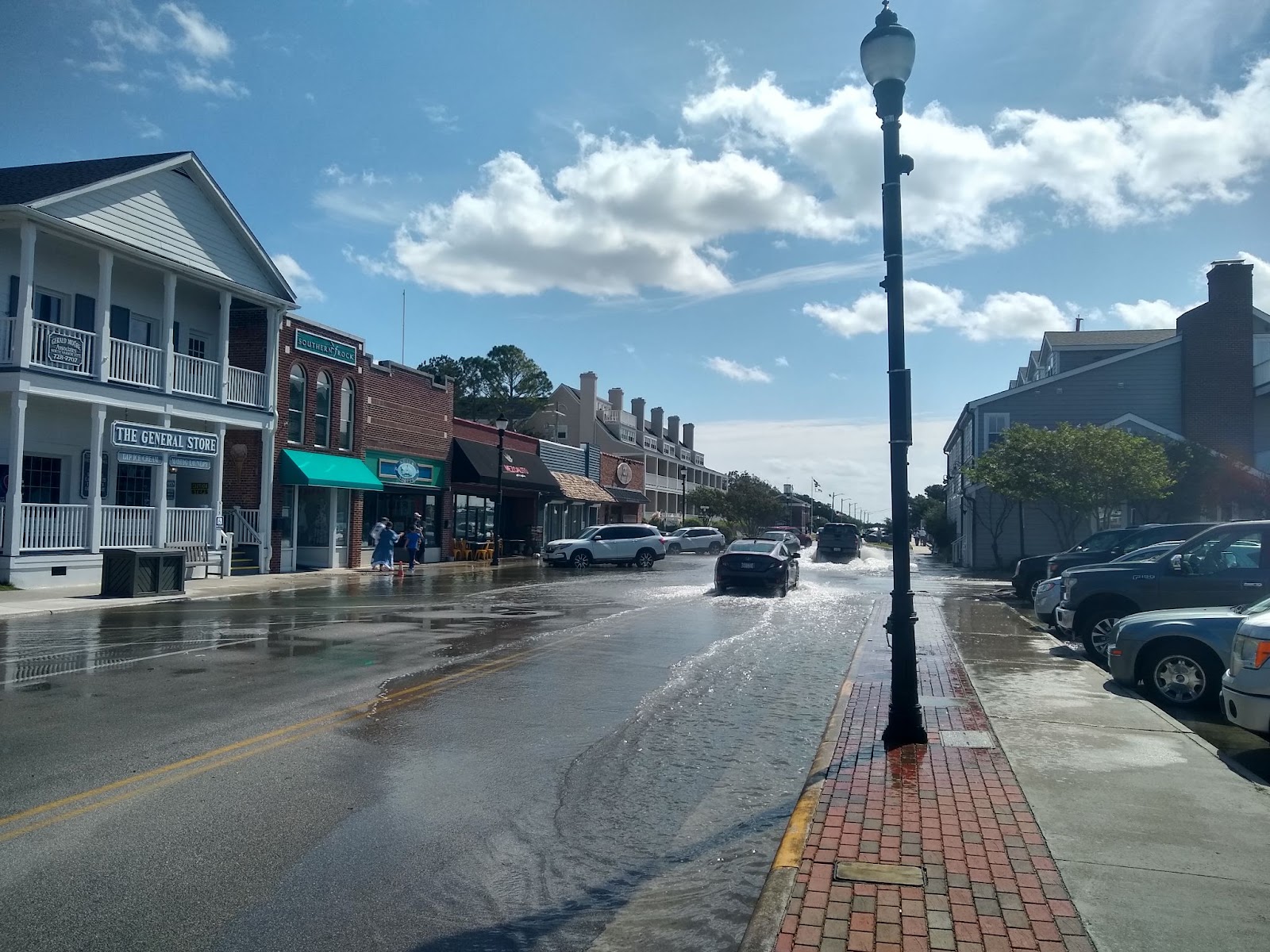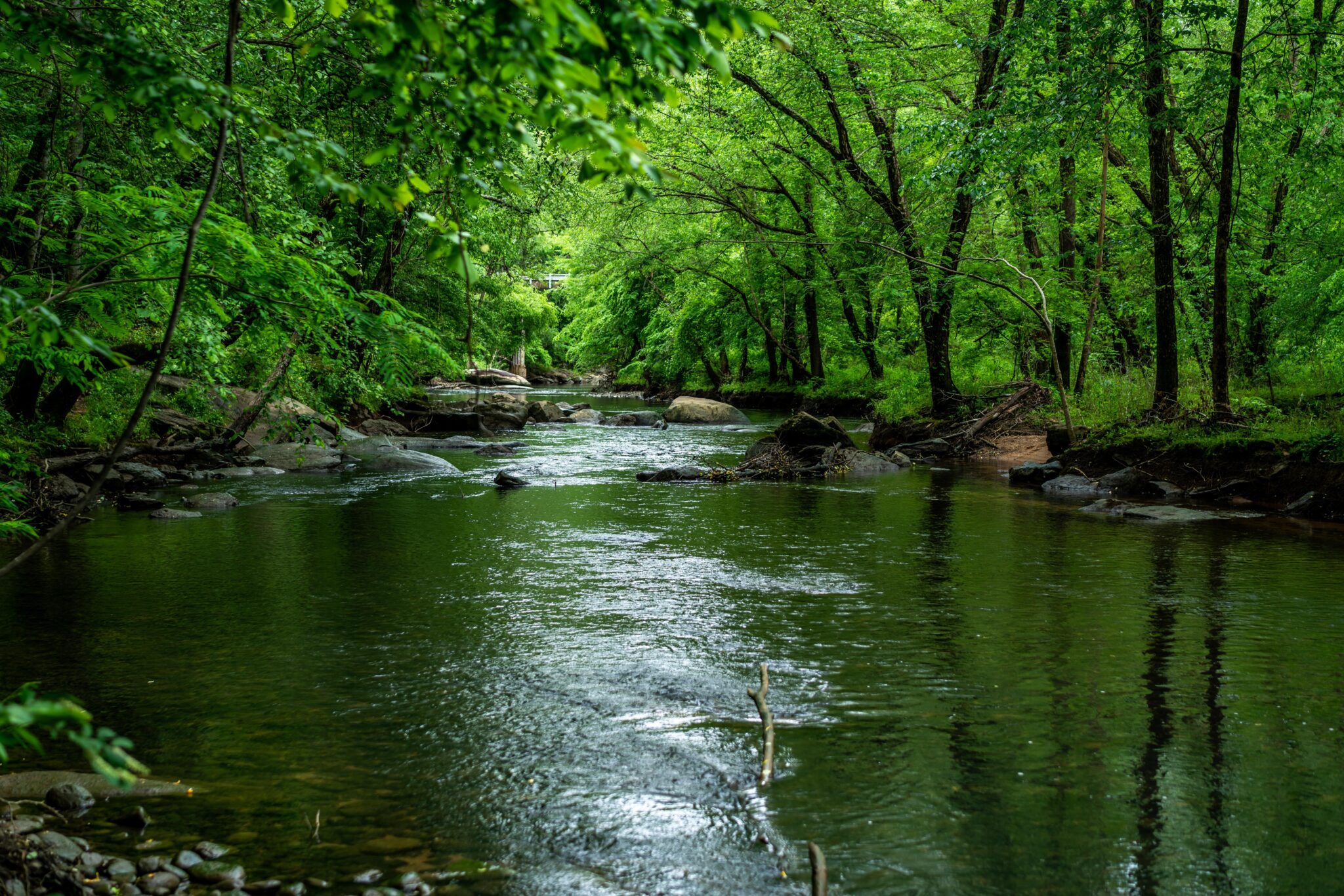New Publication Analyzes Wind Permitting in North Carolina, Other States
FOR IMMEDIATE RELEASE
Contact:
Lisa Schiavinato, 919-515-1895, lisa_schiavinato@ncsu.edu
Posted Monday, May 16, 2016
A new publication from the N.C. Coastal Resources Law, Planning and Policy Center and the North Carolina Clean Energy Technology Center reviews wind energy permitting regulations in North Carolina and six other states.
Author James King, a law fellow at the N.C. Coastal Resources Law, Planning and Policy Center, compared the policies for Maine, Oklahoma, Oregon, South Dakota, Texas and Virginia with those for North Carolina.

“This study shows the extent to which North Carolina has developed its permitting and policies to support wind energy development — and the steps the state can take to provide additional regulatory certainty to investors looking to build new facilities,” King explains.
“James did terrific work on this study, and he gained experience conducting not only legal analysis, but policy analysis as well,” notes co-author Lisa Schiavinato, who is co-director of the N.C. Coastal Resources Law, Planning and Policy Center.
“The comparative analysis in this study can be useful to a variety of stakeholders, from the industry insider to the resident who lives close to the site of a proposed project. Whether one is in the industry or new to the topic, the paper provides insight into the regulatory process, and how important that process is to investors when deciding whether to do business in our state,” adds Schiavinato, who also is North Carolina Sea Grant coastal law, policy and community development specialist.
The authors sought to address stakeholders’ concerns about a lack of clarity regarding North Carolina’s wind permitting rules, notes co-author Ethan Case.
“North Carolina has very little wind development experience, and it’s come to our attention that this lack of experience could be deterring wind-related economic development. This report catalogs wind permitting policies in place in other states that have successfully attracted out-of-state investors to build wind farms,” says Case, former energy policy analyst and wind coordinator with the North Carolina Clean Energy Technology Center.
This white paper is available at http://go.ncsu.edu/o7aak7.
About the Partners
 The North Carolina Coastal Resources Law, Planning and Policy Center is a partnership of North Carolina Sea Grant, the University of North Carolina School of Law, and the UNC Department of City and Regional Planning. It is an interinstitutional entity that coordinates and applies the legal, planning and policy expertise of the University of North Carolina system to the state’s pressing coastal, ocean resource and development issues.
The North Carolina Coastal Resources Law, Planning and Policy Center is a partnership of North Carolina Sea Grant, the University of North Carolina School of Law, and the UNC Department of City and Regional Planning. It is an interinstitutional entity that coordinates and applies the legal, planning and policy expertise of the University of North Carolina system to the state’s pressing coastal, ocean resource and development issues.
Website: nccoastallaw.org
Twitter: @oceancoastallaw
Facebook: North Carolina Coastal Resources Law, Planning and Policy Center

North Carolina Sea Grant provides research, education and outreach opportunities relating to current issues affecting the North Carolina coast and its communities. Since 1970, Sea Grant has been a valuable resource for scientists, educators, local officials, government agencies, coastal businesses and the public to find unbiased, scientifically sound information about the state’s coastal ecosystems. Headquartered at North Carolina State University, Sea Grant is an interinstitutional program within the University of North Carolina system. As part of the National Sea Grant Network, Sea Grant receives funding from the National Oceanic and Atmospheric Administration, through the U.S. Department of Commerce.
Website: ncseagrant.org
Twitter: @SeaGrantNC
Facebook: North Carolina Sea Grant
 The N.C. Clean Energy Technology Center is part of the College of Engineering at North Carolina State University. It advances a sustainable energy economy by educating, demonstrating and providing support for clean energy technologies, practices and policies. It serves as a resource for innovative, green energy technologies through technology demonstration, technical assistance, outreach and training.
The N.C. Clean Energy Technology Center is part of the College of Engineering at North Carolina State University. It advances a sustainable energy economy by educating, demonstrating and providing support for clean energy technologies, practices and policies. It serves as a resource for innovative, green energy technologies through technology demonstration, technical assistance, outreach and training.
Website: nccleantech.ncsu.edu
Twitter: @NCCleanTech
Facebook: N.C. Clean Energy Technology Center
###
North Carolina Sea Grant: Your link to research and resources for a healthier coast
- Categories:


